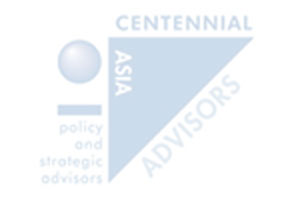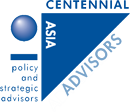Asian Insights
A summary of “Asian Insights” weekly update is published here. The full version is available through paid subscription. Please click here to register your interest. Our executive will get in touch with you.
11
Apr

China: A moment of danger – and a turning point for policy?
- Covid infections in Shanghai are following a similar trajectory to that experienced by Hong Kong earlier: a major surge could see stringent lockdowns and a painful economic downturn.
- A policy turning point has been reached: There are clear signs of “stealth easing” in the property sector. The State Council is now pressing ahead with other easing measures as well. However, policy blind spots remain and could detract from an effective response.
Ukraine and Asia: Longer term impacts
- The Asian Development Bank’s revised forecasts for emerging Asian economies are in line with our view of a relatively resilient region. The ADB even revised upwards its expectations for growth in Taiwan and Singapore.
- The key question is the longer term implications of the Ukraine crisis. We look in particular at the prospects for the globalisation which has so greatly benefited emerging Asia. Prior to the recent crises, globalisation had held up reasonably well: trade in goods may have lost some momentum but other dimensions of globalisation – financial flows, migration and remittances and cross-border digital flows – have continued to expand even in the face of repeated crises. This tells us that globalisation has powerful support.
- There will be headwinds to globalisation. The trend towards self-sufficiency, protectionism and inward policies will hurt. However, there are offsetting forces as well such as technology which can help sustain cross-border flows of goods, services, capital, people and data.
- China’s leaders must be acutely aware of the country’s strategic vulnerabilities that have been exposed by the Ukraine crisis. They will focus unremitting efforts to overcome what is to them intolerable exposure to western pressure. That will make for a more difficult geo-political environment for emerging Asia.
- Countries such as Vietnam that get the basics right will do relatively better in this new order.
Highlights from the CAA Weekly Table:
Asian political risks:
- A strong backlash against suggestions by some leaders that Indonesia’s President Jokowi should be allowed a third term which is currently not allowed by law, ensures that the effort to overturn constitutional norms will not make headway.
Asian economic prospects:
Three trends emerge from recent data in the region.
- First, the export picture is darkening moderately, with new export orders weakening.
- Second, inflation has picked up, but from a low base. Overall, central banks in the region are not likely to hurry towards monetary tightening, however.
- Third, despite the export picture, there are positive signs for growth in the region. In India, services activity is strengthening even as investment remains tepid. In the Philippines, there are more signs of an upswing, with industrial production and exports both doing well.

Russia-Ukraine war: India caught in a geostrategic bind
- India is the biggest loser in the Russia-Ukraine war from an economic and geostrategic standpoint. India’s reliance on Russian arms and historically warm relations explain Delhi’s pushback against calls to take a stand on the war.
- Near-term, a rapture in the Russo-Indian symbiotic relationship is not likely. India needs more time to diversify away from Russian arms. The premise of importing Russian crude at a discount is a further sweetener. Russia, acutely aware of its reliance and lop-sided relationship with China, will be keen to keep India onside to balance against China as well.
- On the economic front, there may be small positives from soaring commodity prices. Booming wheat exports represent a small positive in the grand scheme of things.
- But the fertiliser subsidy bill looks set to climb as potash prices surge. There is limited room to cut fuel taxes, leaving consumers to feel the pinch. And a widening import bill looks set to follow, entailing a deterioration in the external accounts.
Thailand: Fall of Prayut government could presage wider instability
- There are two threats to Thai political stability. One is the infighting within the establishment, which could precipitate early elections. The other is a surge in protest activity as anti-establishment forces renew their push for fundamental social and political reforms.
- There is pressure for early elections because of the instability of the coalition government. The opposition is machinating to topple the government in the coming months. Premier Prayut will seek to complete his term which officially ends in Mar 23 by offering compromises to his opponents.
- The risk of deeper, longer-term political instabilities arises from the deep fault lines in Thai society that the ruling establishment has avoided addressing. Instead, it has doubled up on repression, which raises the risk of bottled-up resentments eventually exploding into crisis.
Highlights from the CAA Weekly Table:
- China: As the threats to economic growth and financial stability grow, it is concerning that the policy tools do not seem to be as effective as before.
- South Korea: The discernible loss of momentum in manufacturing and investment activity in February can only be partly explained by base effects. Consumer activity is unsteady.
- Indonesia: Underlying economic indicators are improving, with business confidence at an 8-month high. But inflationary pressures are mounting.
- Thailand: Economic momentum flagged in February as we had expected. Tourist arrivals are only edging up slowly, putting our expectation of a tourism-fuelled recovery at risk.
- Malaysia: The central bank remained confident about recovery, buoyed by the tech cycle, resumption of travel, improving labour market conditions and continued policy support
- Philippines: Upbeat high-frequency activity indicators affirm our view for a strong economic showing this year.
